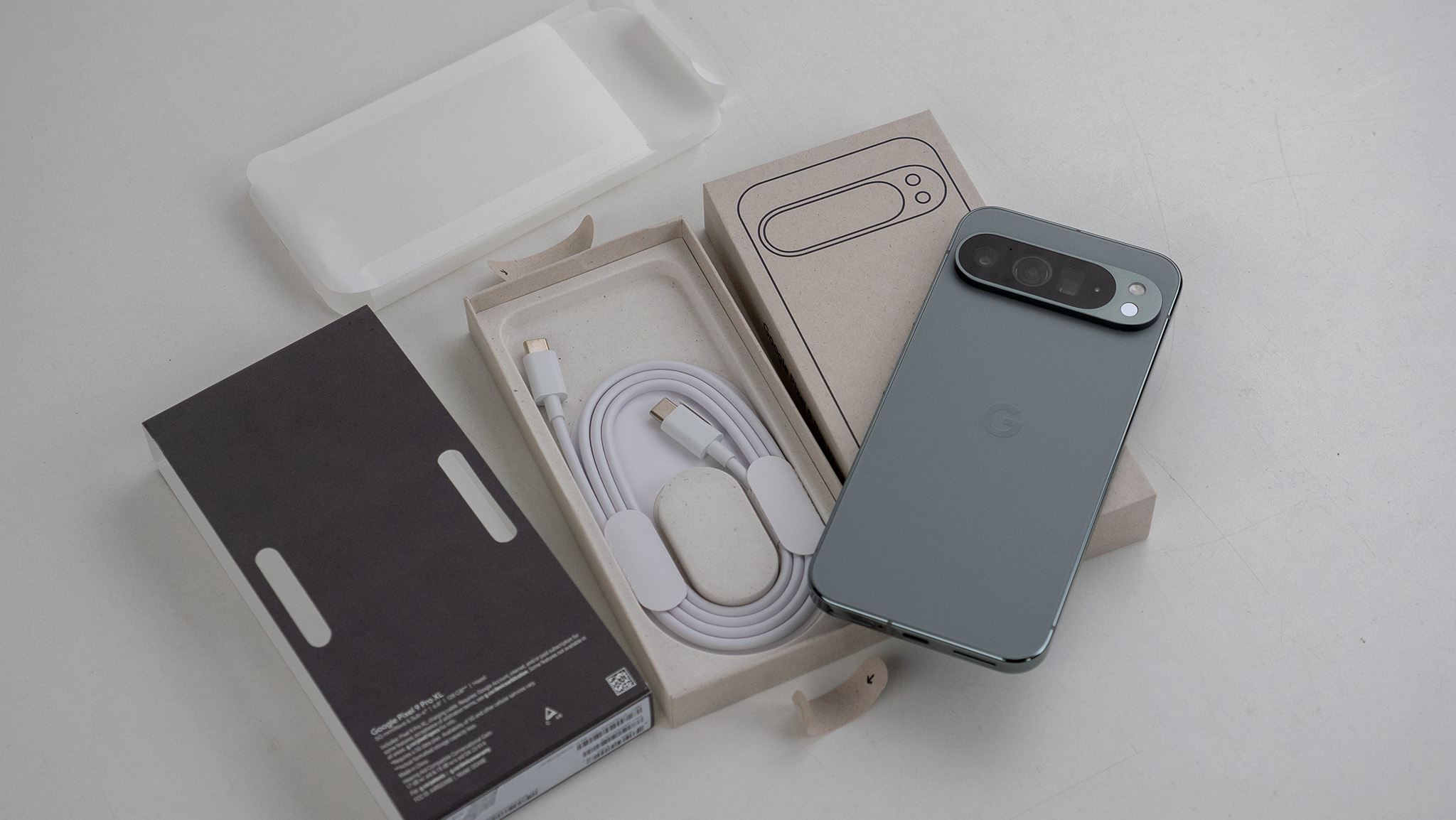Deactivating Facebook: How I kicked the habit
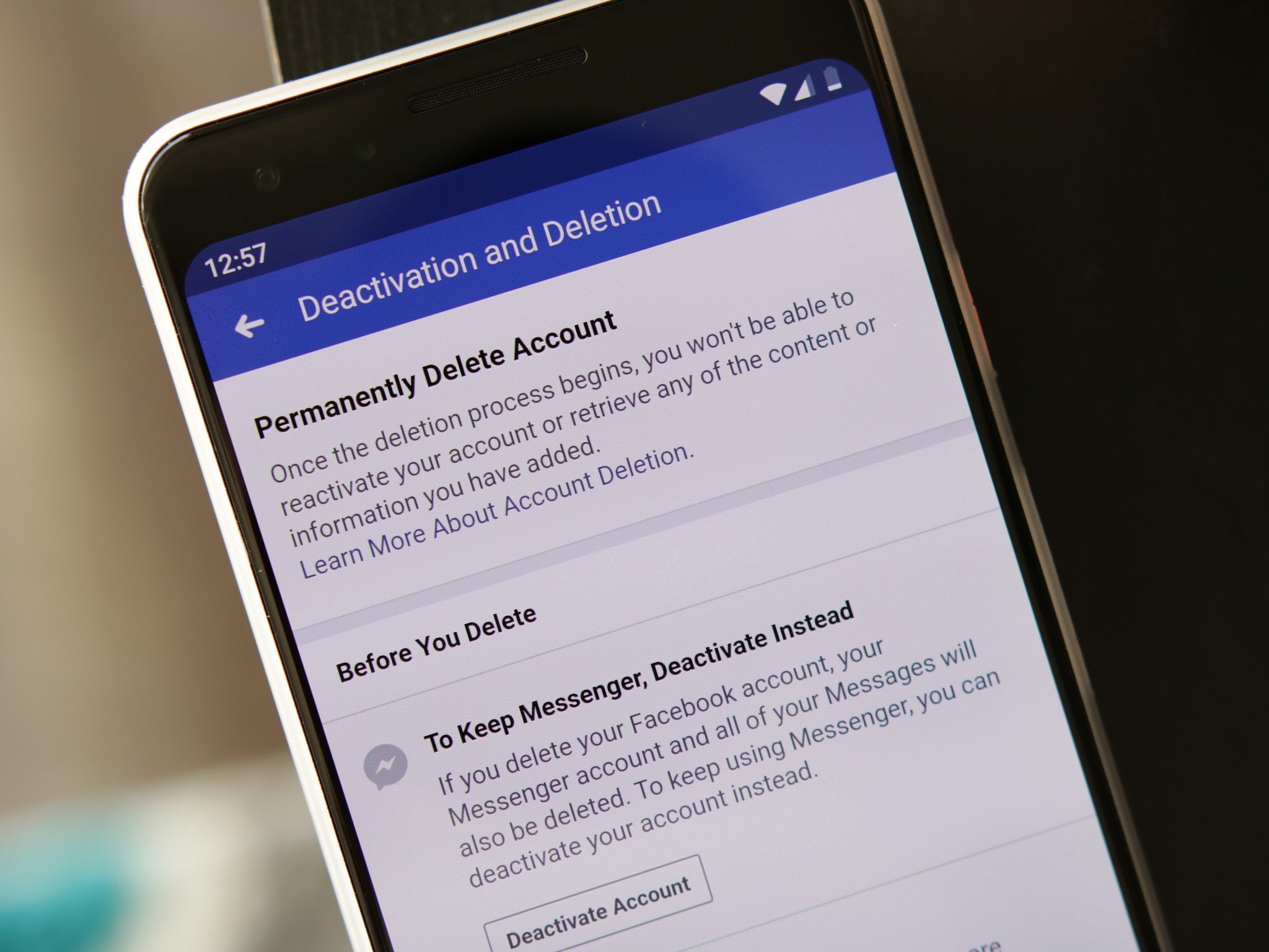
This is the first of several editorials where I shall chronicle the trials and tribulations of my personal journey disconnecting from Facebook.
For the past couple of years, I've been "that guy" at the party who rants about Facebook and tries to rally others around me to ditch Facebook — while still being hopelessly addicted to its services myself. After all that procrastination, 2019 is finally going to be the year where I consciously detangle my life from Facebook's grasp.
We've all been following the endless stream of troubling news associated from Facebook — from secretly conducting psychological tests on its users, the reverberating impacts from the Cambridge Analytica scandal, the constant data breaches, and the way Facebook was utilized to promote a campaign of genocide in Myanmar — and yet removing myself from Facebook's clutches was still "too personally inconvenient" to seriously consider, an argument I've heard back from many people I've talked to over the years.
My first steps towards leaving Facebook started with deleting the Facebook app from my phone, a symbolic and important step to take. If I wanted to check in on Facebook, I would now need to log into Facebook through a web browser. Next, I switched to Facebook Messenger Lite to get rid of all the bloated features found in the main app. These two simple moves permanently eliminated the most annoying Facebook notifications from my phone and is something I recommend to everyone.
But the next big step would actually involve shutting down my profile itself — and that's precisely when you start realizing just how thirsty Facebook is for your attention.
The best designed page on Facebook
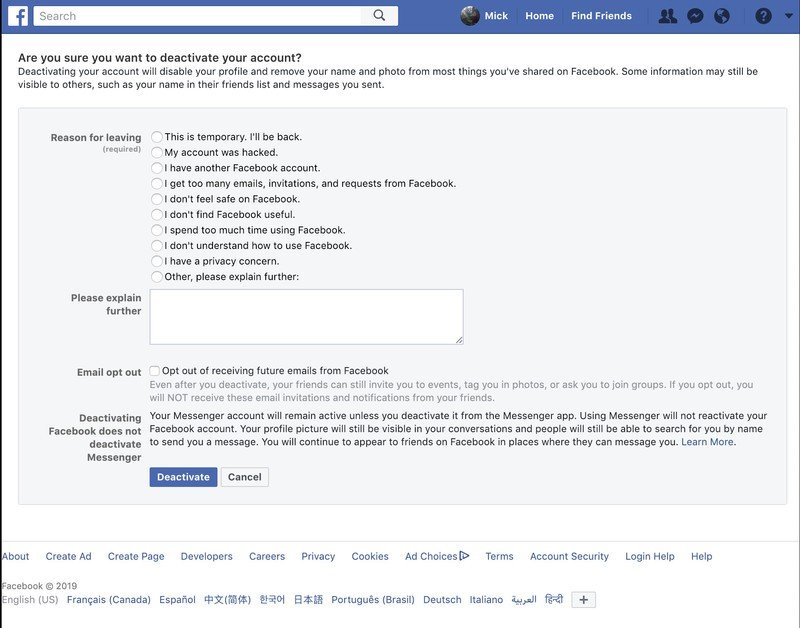
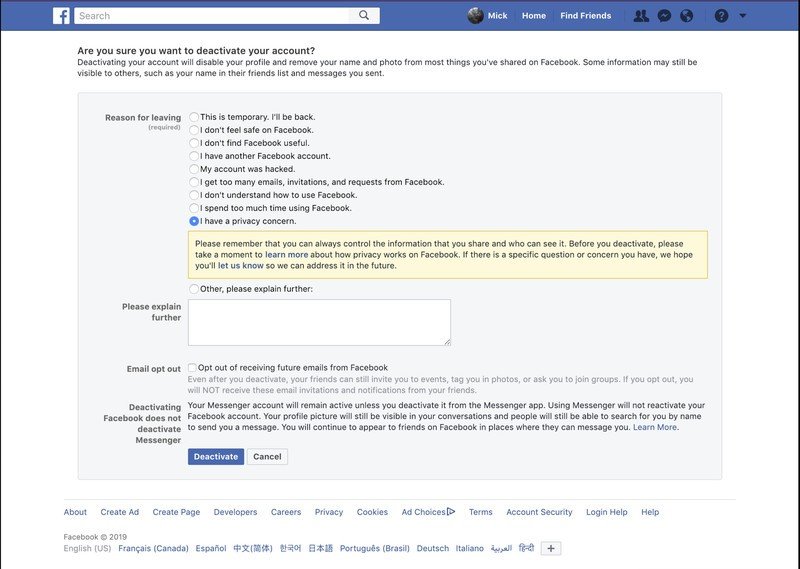
The Facebook team has been adding new features over the years, but in my opinion the most carefully designed page on the whole platform is the retention page when you try to deactivate your profile.
I'm going off memory here a bit but one of the first things Facebook shows you when you click through to deactivate your account is a short list of some of your friends and their smiling faces with a message, paraphrasing here, that says "if you leave Facebook you won't be able to connect with all your friends who still use Facebook" — and I'll admit that this dumb ploy worked on me multiple times.
Be an expert in 5 minutes
Get the latest news from Android Central, your trusted companion in the world of Android
Facebook's retention page is a masterclass into guilting you into staying connected.
How will I keep in touch with some of these people? All these years I've been friending people on Facebook instead of getting their phone numbers or emails. I stalled at this screen many times over the years, but this time I pushed on.
Next, Facebook wants to know why you're leaving — and you're required to give a reason if you want to deactivate your account. Whichever option you pick, a window instantly pops up with more information from Facebook about their features and controls.
To me, this process felt like telling your romantic partner that you want to break up, only for them to respond "But wait, baby, I can change!"
It's all been carefully designed to make you second guess your decision and lure you back into staying on the platform. This time, I decided to go with the option "Other, please explain further" and went off on a little rant that made me feel a bit better even though I'm pretty sure no human eyes will ever read what I wrote there. A cathartic experience nonetheless.
🎶Ooh, ooh baby, I want you back 🎶
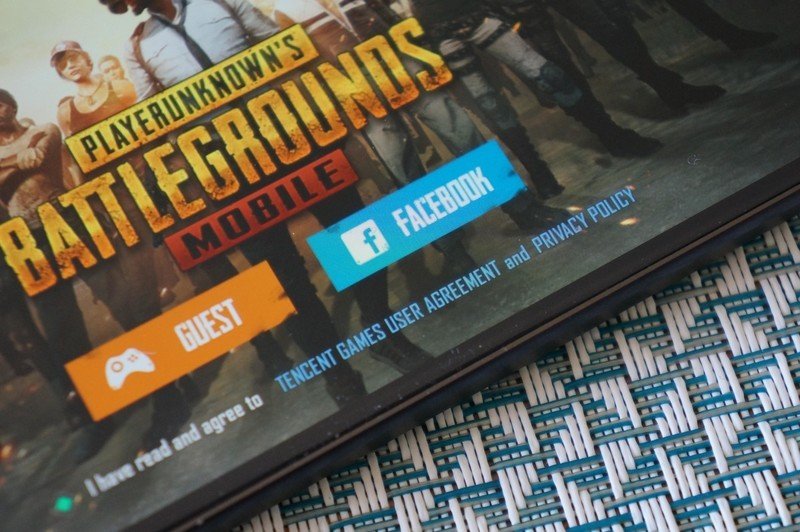
I've previously written about the sticky ways Facebook has crept across the tech sector on the premise of convenience for app developers and Facebook users alike. For a time, it was a streamlined process for quickly creating a profile on a new app with one tap rather than entering all your information.
But when you go about deactivating your profile, you quickly realize how much you may have been relying on those Facebook logins. If you've created an account on a different service — say Spotify or another service you use daily, or PUBG Mobile or any mobile game that you might have signed up with or connected to your Facebook account — you may lose access to that count or risk reactivating your Facebook profile by logging into those apps.
Logging into apps and services using your Facebook credentials is a clever way of making Facebook feel "essential".
Instagram is a great example of that. If you signed up with Instagram before it was bought out by Facebook your account is simply linked to your Facebook account and you can log in and unlink your Facebook account without reactivating your profile. If you signed up for Instagram through your Facebook account and now want to disconnect from Facebook, my understanding is you would need to basically create a new account that isn't connected to a Facebook account.
Deactivating your Facebook profile means you get the full-court press from Facebook trying to get you to log back in — pretty much anywhere — so that they can reactivate your profile. I've seen more ads for Facebook and its apps in the past few weeks than I ever saw as a full Facebook user.
It's just another way that Facebook has intentionally and methodically crept its way into making it seem like an essential internet service. Fact check: It is not.
Breaking the habit
I've been a Facebook user for over 10 years, jumping on board back in 2006 when it became available to anyone over 13 years old with a valid email address. One of the strangest things I've realized since deactivating is just how much Facebook had ingrained itself into my daily habits.
Even while writing this article, I still managed to load up the Facebook home page without actually meaning to.
Browsing to Facebook during any lull in my day had become so second nature to me that I still find myself opening a new tab, instinctively typing "face" and then staring at the log-in screen before I even realize what I'm doing. With the way Google auto-fills my login credentials, I know it's only a matter of time until I errantly hit Enter and accidentally reactivate my profile.
Even now, I recognize I've only implemented a half measure — instead of going all-in by deleting my Facebook profile entirely, I've started the process by deactivating my profile which lets me still stay connected with friends using Facebook Messenger without using the main website.
I don't think I'll be fully deleting my Facebook profile until I've both found a suitable replacement for Facebook Messenger and also convinced enough of my friends and family to migrate over to justify fully disconnecting. I'm also still dealing with the fallout of losing touch with all the Facebook groups I was a member of, which was another one of the Facebook features that made the service so great — but not so essential that I'm willing to go back. Not yet.
Facebook's value comes from collecting user data and fostering user engagement across a wide network of apps and services. I, for one, will spend 2019 doing my best effort to stop feeding the beast with what it wants — my attention.
Marc Lagace was an Apps and Games Editor at Android Central between 2016 and 2020. You can reach out to him on Twitter [@spacelagace.

